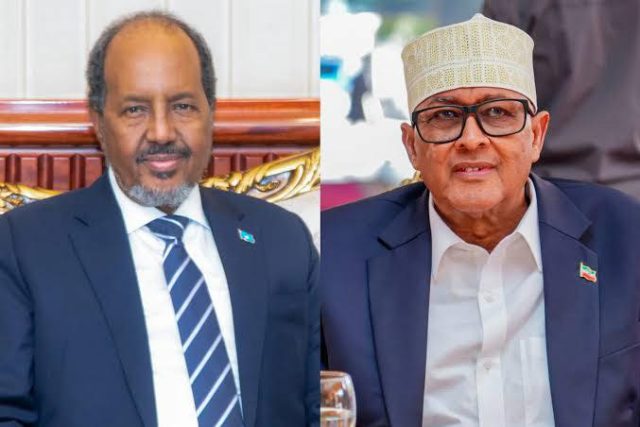somalia somaliland The political future of Somaliland remains a crucial topic for not only its inhabitants but also for the broader Somali region.
As the years progress, the question of whether Somaliland should remain united with Somalia or pursue full independence continues to dominate political discussions. Finding a solution—whether it is unity or separation—demands sincere political commitment from both Mogadishu and Hargeisa. For meaningful progress, both sides must set aside political differences, face the realities head-on, embrace the truth, and avoid wasting valuable time in stagnant diplomacy.
The Root of the Somaliland Question
In recent years, substantial efforts have been made to understand the core of Somaliland’s political stance. What has become evident is that political strategies alone cannot resolve the issue. Diplomatic interventions from external powers, while influential, have yet to produce tangible solutions that satisfy both Somaliland and Somalia. The heart of the matter lies in the collective political will to address historical grievances, accept realities, and forge a path forward that benefits all parties involved.

Somalia, particularly Mogadishu, must reflect on its historical mistakes before time becomes the harshest teacher. Conversely, Somaliland—represented by Hargeisa—should take stock of the lessons learned over the past decades before the window of opportunity closes. Both leaderships need to realize that the lingering state of uncertainty is a disservice to their people and the region at large.
The Political Landscape in Somaliland
A glance at the public gatherings in major cities across Somaliland, as well as various cultural festivals and political rallies, reveals much about the collective sentiment of its people. These are not mere celebrations of joy or fleeting fantasies; they are expressions of a national identity that seeks recognition and stability. For the younger generation in Somaliland, the narrative is one of resilience and hope for a recognized nation-state. Would this generation, bearing the legacy of their elders, genuinely embrace the notion of reunification with Somalia? For many, the answer seems increasingly clear.

WARARKA SOOMAALIDA RIIX HALKAN
Somalia’s Political Reality: Lessons Unlearned
For Somalia, particularly under the leadership of President Hassan Sheikh and Somaliland’s President Cirro, political hurdles remain that cannot be ignored. More than three decades have passed since Somaliland declared itself autonomous, a period marked by political deadlock and unfulfilled promises. The question that looms large is: has there ever been a sincere, structured dialogue aimed at addressing the root causes of Somaliland’s push for independence? The political rhetoric often overshadows the pressing need for constructive discussions that could pave the way for mutual understanding and a sustainable solution.
Unity holds no true value if it cannot be articulated in meaningful terms that resonate with the people who oppose it. Similarly, secession cannot be pushed forward without addressing the practical realities and the costs associated with state-building and international recognition. Mogadishu must either present a compelling vision for unity that appeals to Somaliland’s aspirations or acknowledge that separation may indeed be the only viable path forward.
The Role of Leadership: Hassan Sheikh vs. Cirro
The political responsibilities facing President Hassan Sheikh of Somalia and President Cirro of Somaliland are monumental. For over three decades, the conversation has stalled, and the absence of genuine dialogue has left the region in political limbo. Both leaders now stand at a crossroads: they can either become the architects of a new chapter for the Somali people or the caretakers of perpetual division.
For Somaliland, the next five years are critical. Should President Cirro’s term end without substantial progress, history may judge him harshly. The people of Somaliland deserve tangible development, political stability, and a clear path forward—be it towards full independence or a meaningful federal arrangement with Somalia. Without such progress, the political landscape will remain stagnant, and the opportunity for peaceful resolution may slip away.

A Roadmap to Resolution: Unity or Separation?
The solution lies not in the political posturing of either Mogadishu or Hargeisa but in the willingness to engage in honest dialogue. If unity is the goal, Mogadishu must present a vision that genuinely respects the autonomy and political aspirations of Somaliland. If separation is inevitable, Hargeisa must prepare for the realities of self-governance and international diplomacy.
A political stalemate benefits no one, and time is not on the side of endless negotiations. Both governments must bring all options to the table, face the truth without denial, and work towards a resolution that prioritizes the well-being of the Somali people. If either side fails to act decisively, the future may hold nothing but regret for lost opportunities.
Conclusion
The quest for resolution in Somaliland’s political journey is far from simple. However, the path forward requires courage, transparency, and an unyielding commitment to the truth. Unity or separation, the decision must be rooted in the will of the people and a sincere desire for peace and stability. The time for empty rhetoric has long passed—it is now time for action.



































